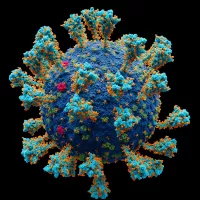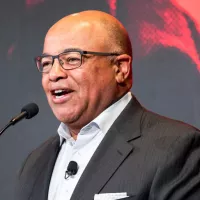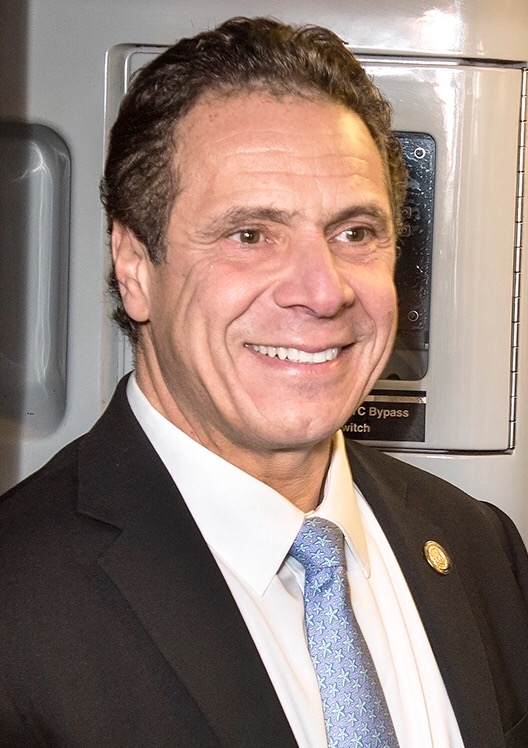How Andrew Cuomo built a successful career. Explore key moments that defined the journey.
Andrew Cuomo is an American politician and lawyer. A Democrat and son of former New York Governor Mario Cuomo, he served as the 56th Governor of New York from 2011 to 2021. His tenure ended with his resignation amidst multiple sexual misconduct allegations. He previously held positions as the New York Attorney General and U.S. Secretary of Housing and Urban Development under President Bill Clinton. Cuomo recently ran for New York City mayor as an independent after losing in the democratic primary.
1982: Campaign Manager for Father's Gubernatorial Campaign
During his father's successful 1982 campaign for governor, Andrew Cuomo served as campaign manager and then joined the governor's staff as a policy advisor.
1984: Assistant District Attorney
From 1984 to 1985, Andrew Cuomo was a Manhattan assistant district attorney.
1985: Worked at Blutrich, Falcone & Miller law firm
From 1984 to 1985, Andrew Cuomo briefly worked at the law firm of Blutrich, Falcone & Miller.
1986: Founded HELP
In 1986, Andrew Cuomo founded Housing Enterprise for the Less Privileged (HELP).
1988: Runs HELP full time
In 1988, Andrew Cuomo left to run HELP full time.
1990: Chairs New York City Homeless Commission
From 1990 to 1993, Andrew Cuomo chaired the New York City Homeless Commission.
1993: End of term as chair of the New York City Homeless Commission
From 1990 to 1993, Andrew Cuomo was chair of the New York City Homeless Commission.
1993: Assistant Secretary in HUD
In 1993, Andrew Cuomo served in the United States Department of Housing and Urban Development as assistant secretary.
1993: Appointed Assistant Secretary for Community Planning and Development
In 1993, Andrew Cuomo was appointed Assistant Secretary for Community Planning and Development in the Department of Housing and Urban Development (HUD).
January 1997: Confirmed as Secretary of HUD
In January 1997, Andrew Cuomo was unanimously confirmed by the United States Senate to become the Secretary of HUD.
1997: Secretary of Housing and Urban Development
In 1997, Andrew Cuomo became the Secretary of Housing and Urban Development under President Bill Clinton, serving until 2001.
June 16, 1999: Cuomo Speech on Community Builders Program
On June 16, 1999, Andrew Cuomo declared that one purpose of the Community Builders program was to fight against HUD's abolition in a speech.
August 1999: Community Builders Letter
In August 1999, Community Builders, as part of the Andrew Cuomo's program, distributed a letter to community groups to fight against proposed tax cuts.
2000: Negotiated Agreement with Smith & Wesson
In 2000, Andrew Cuomo led HUD efforts to negotiate an agreement with handgun manufacturer Smith & Wesson to change the design, distribution, and marketing of guns to make them safer.
2001: Joins Fried Frank law firm
From 2001 to 2004, Andrew Cuomo worked at the Fried Frank law firm.
2001: End of Term as HUD Secretary
In 2001, Andrew Cuomo's service as Secretary of HUD ended with the conclusion of the Clinton administration.
2001: End of HUD Secretary Term
In 2001, Andrew Cuomo's term as Secretary of Housing and Urban Development ended as the Clinton administration concluded.
2002: Comeback After Gubernatorial Loss
Andrew Cuomo clinching the Democratic party nomination for attorney general in 2006 was considered a significant rebound following his unsuccessful 2002 gubernatorial campaign.
2002: First Run for Governor
In 2002, Andrew Cuomo first ran for the Democratic nomination for New York governor but his campaign took serious damage after a gaffe related to comments about the September 11 attacks.
2002: Failed Gubernatorial Bid
In 2002, Andrew Cuomo had a failed bid to win the Democratic primary in the New York gubernatorial election.
2004: Leaves Fried Frank Law Firm
From 2001 to 2004, Andrew Cuomo worked at the Fried Frank law firm and later joined the Island Capital real estate firm.
November 7, 2006: Elected New York Attorney General
On November 7, 2006, Andrew Cuomo defeated the Republican nominee, Jeanine Pirro, and was elected as the New York Attorney General, winning 58% of the vote.
2006: Declared Candidacy for Attorney General
In 2006, Andrew Cuomo declared his candidacy for the Democratic nomination for New York state attorney general and won the Democratic Party's endorsement on May 30.
2006: Elected New York Attorney General
In 2006, Andrew Cuomo was elected as the New York Attorney General.
July 23, 2007: Admonishes Spitzer Administration
On July 23, 2007, Andrew Cuomo's office admonished the Spitzer administration for ordering the New York State Police to keep special records of then Senate majority leader Joseph Bruno's whereabouts.
2007: Investigation into Lending Practices
In 2007, Andrew Cuomo was active in a high-profile investigation into lending practices and anti-competitive relationships between student lenders and universities, leading to changes in lending policy at many major American universities.
June 10, 2008: Internet Service Providers Shut Down Online Child Pornography
On June 10, 2008, Andrew Cuomo announced that three major Internet service providers (Verizon Communications, Time Warner Cable, and Sprint) would "shut down major sources of online child pornography" by no longer hosting many Usenet groups.
December 2008: Hillary Clinton Becomes Secretary of State
In December 2008, after Hillary Clinton was chosen as U.S. Secretary of State, then-New York governor David Paterson was responsible for appointing a temporary replacement until a special election. Andrew Cuomo was considered a leading candidate for this role.
September 18, 2009: Obama Advisors Suggest Paterson Withdraw
On September 18, 2009, advisors to President Barack Obama informed Governor David Paterson that the president believed he should withdraw his 2010 gubernatorial candidacy, stepping aside for Andrew Cuomo.
January 23, 2010: Cuomo to Announce Gubernatorial Campaign Plans
On January 23, 2010, the New York Daily News reported that Andrew Cuomo would announce plans for a gubernatorial campaign at the end of March.
May 22, 2010: Cuomo Announces Run for Governor
On May 22, 2010, Andrew Cuomo officially announced his candidacy for governor through a video posted on his campaign website.
May 26, 2010: Cuomo Announces Robert Duffy as Lieutenant Governor Choice
On May 26, 2010, Andrew Cuomo announced his selection of Robert Duffy, the Mayor of Rochester, as his choice for lieutenant governor.
November 2, 2010: Cuomo Wins Election for Governor
On November 2, 2010, Andrew Cuomo won the election for governor by a landslide, securing 62.6% of the vote against Republican Carl Paladino.
2010: Elected New York Governor
In 2010, Andrew Cuomo won the New York gubernatorial election with over 60 percent of the vote.
2010: Smaller Victory Margin in General Election
In 2010, despite low voter turnout, Cuomo won the general election by a comfortable margin; however, his margin of victory was smaller than it had been in his 2010 victory. Cuomo was sworn in for his second term as governor.
January 1, 2011: Cuomo Takes Gubernatorial Oath of Office
On January 1, 2011, Andrew Cuomo was sworn in as governor of New York, succeeding David Paterson.
June 24, 2011: Cuomo Signs Marriage Equality Act into Law
On June 24, 2011, Andrew Cuomo signed the Marriage Equality Act, introducing homosexual marriage in New York.
July 16, 2011: Cuomo Finalizes Deal with Public Employees Federation
On July 16, 2011, Andrew Cuomo finalized a five-year deal with the Public Employees Federation to end pay raises, implement furlough days, and require additional contributions to health insurance accounts.
2011: Cuomo Becomes Governor of New York
In 2011, Andrew Cuomo became the 56th governor of New York.
2011: Tax Law Signed
In 2011, Andrew Cuomo delivered Medicaid expansion under the Affordable Care Act and signed a tax law that raised taxes for the wealthy and lowered taxes for the middle class.
2011: Restructuring of New York State Tax Code
In 2011, Andrew Cuomo was praised for his restructuring of the New York State tax code.
October 2012: Cuomo Allows Provisional Ballots After Hurricane Sandy
Following Hurricane Sandy in October 2012, Andrew Cuomo allowed New York voters, via a specific provision aimed at accommodating those displaced, to cast provisional ballots for the 2012 election anywhere in the state. He also appointed a commission to examine the responses of New York utilities to damage caused by the storm.
2012: Cuomo Aims to Reduce Public Employee Pensions
In an interview, Andrew Cuomo stated his top goal in 2012 is the reduction of public employee pensions.
2012: Webster Shooting
In response to the 2012 Webster shooting and the Sandy Hook Elementary School shooting, Cuomo signed the NY SAFE Act of 2013.
January 15, 2013: Cuomo Signs NY SAFE Act into Law
On January 15, 2013, Andrew Cuomo signed into law the NY SAFE Act, the first state gun control bill to pass after the Sandy Hook Elementary School shooting. It was described as the toughest gun control law in the United States.
June 20, 2013: New York State Assembly passed the Women's Equality Act
On June 20, 2013, the New York State Assembly passed the Women's Equality Act, which included bills affecting issues such as domestic violence, human trafficking, and pregnancy discrimination.
July 5, 2013: Cuomo Signs Amendment to NY SAFE Act
On July 5, 2013, Andrew Cuomo signed an amendment to the NY SAFE Act that exempts retired police officers from some of the act's ownership restrictions.
2013: Signed NY SAFE Act
In 2013, Andrew Cuomo signed the NY SAFE Act, considered the strictest gun control law in the United States, in response to the Sandy Hook Elementary School shooting and the 2012 Webster shooting.
January 2014: Cuomo Announces Executive Order for Limited Use of Medical Marijuana
In January 2014, Andrew Cuomo announced an executive order to allow the limited use of medical marijuana in New York.
March 5, 2014: Astorino Announces Run for Governor
On March 5, 2014, Westchester County executive Rob Astorino announced his Republican candidacy against Andrew Cuomo for governor.
July 5, 2014: Cuomo Signs Compassionate Care Act into Law
On July 5, 2014, Governor Cuomo signed the Compassionate Care Act into law, legalizing medical cannabis in New York with some restrictions.
November 4, 2014: Cuomo Reelected for Second Term
On November 4, 2014, Andrew Cuomo was reelected for a second term as governor, receiving 54% of the vote.
December 17, 2014: Cuomo Administration Announces Ban on Hydraulic Fracturing
On December 17, 2014, the Cuomo administration announced a ban on hydraulic fracturing in New York State, citing "significant public health risks" associated with fracking, following a long-awaited study.
2014: Re-elected as Governor
In 2014, Andrew Cuomo was re-elected as the governor of New York.
2014: Inception of NY State's Start-Up NY program
In 2014, the Start-Up NY business tax incentive program came into inception. As of July 2016, it had generated 408 jobs and the ads promoting the program had cost at least $53 million.
2016: Presidential Run Speculation
In 2016, there was media speculation about a possible presidential run by Andrew Cuomo.
February 2017: Cuomo calls recreational cannabis a 'gateway drug'
In February 2017, Cuomo described recreational cannabis as a "gateway drug" showing his opposition to it.
April 18, 2017: Cuomo Signs New York State 2018 Fiscal Year Budget
On April 18, 2017, Andrew Cuomo signed the New York State 2018 fiscal year budget, including the Excelsior Scholarship provision.
August 2017: Cuomo Administration Awards Grants to NY Colleges for Prisoner Courses
In August 2017, the Cuomo administration awarded more than $7 million in grants, financed with money from large bank settlements, to New York colleges to offer courses to New York prisoners.
2017: Criticism from Cynthia Nixon
In 2017, Andrew Cuomo was challenged in the Democratic primary by Cynthia Nixon, who criticized him for failing to fix the New York City Subway after the 2017 New York City transit crisis declaration.
2017: Closure of Indian Point Nuclear Plant Announced
In 2017, Cuomo announced that the Indian Point nuclear plant, which produced one quarter of New York City's power, would be closed.
January 2018: Cuomo Proposes Criminal Justice Reforms
In January 2018, Andrew Cuomo proposed reforms that would reduce delays during trials, ban asset seizures in cases where there has been no conviction, make it easier for former convicts to get a job after leaving prison, and end cash bail for minor crimes.
April 2, 2018: Cuomo Announces Legislation Preventing Domestic Abusers from Possessing Firearms
On April 2, 2018, Andrew Cuomo announced the passage of new legislation that prevents those who have been convicted of domestic violence from possessing any kind of firearms as well as losing their gun license.
April 2018: Cuomo Announces Restoration of Voting Rights for Parolees
In April 2018, Andrew Cuomo announced that he would restore the voting rights of parolees through an executive order, considering restoring the voting rights of all parolees.
November 6, 2018: Cuomo-Hochul Ticket Defeats Molinaro-Killian Ticket
On November 6, 2018, the Cuomo-Hochul ticket won the election against the Molinaro-Killian ticket with a margin of 59.6% to 36.2%.
December 2018: Cuomo Announces Support for Legalizing Recreational Cannabis
In December 2018, Andrew Cuomo announced his support for legalizing the recreational use of cannabis, reversing his previous opposition.
2018: Support for Amazon HQ2 in New York
In 2018, Andrew Cuomo supported providing tax incentives to attract Amazon to locate their "Amazon HQ2" in New York State, even joking he'd change his name to "Amazon Cuomo."
2018: Re-elected as Governor Again
In 2018, Andrew Cuomo was re-elected as the governor of New York for a third term.
2018: Reuniting the IDC with the Democratic Conference
In 2018, Andrew Cuomo was responsible for reuniting the IDC with the mainstream Democratic conference.
2018: Excelsior Scholarship available to families making less than $125,000
In 2018, Families making less than $125,000 could have free tuition at all SUNY and CUNY universities, thanks to the Excelsior Scholarship.
January 22, 2019: Cuomo signed the 2019 version of the Reproductive Health Act
On January 22, 2019, Andrew Cuomo signed the 2019 version of the Reproductive Health Act after Democrats gained control of the state Senate. To celebrate the bill's passage, Cuomo ordered One World Trade Center to be lit in pink, which sparked criticism from conservatives and Catholic Cardinal Timothy Dolan.
February 25, 2019: Cuomo Signs "Red Flag" Gun Protection Law
On February 25, 2019, Andrew Cuomo signed the "red flag" gun protection law, allowing a court to temporarily prohibit someone from buying or possessing a gun if they are deemed a threat to themselves or others.
May 2019: Cuomo Announces Fourth Term Run
In May 2019, Andrew Cuomo announced that he would run for a fourth term as governor of New York.
May 30, 2019: Cuomo Signs Repeal of Gravity Knife Ban
On May 30, 2019, Andrew Cuomo signed into law a repeal of the Penal Code provision that had listed the "gravity knife" as a prohibited weapon, citing a recent court decision that the existing ban was unconstitutional.
July 30, 2019: Cuomo Signs Laws Banning 3D Printed Guns and Requiring Safe Firearm Storage
On July 30, 2019, Andrew Cuomo signed two laws: one banning the manufacture and sale of 3D printed guns, and the other requiring safe storage of firearms when children younger than 16 years of age live in a gun owner's home.
2019: Free tuition at SUNY and CUNY available to families making less than $125,000 in 2019 through Excelsior Scholarship.
In 2019, Families making less than $125,000 could have free tuition at all SUNY and CUNY universities, thanks to the Excelsior Scholarship.
2020: Presidential Run Speculation
In 2020, there was media speculation about a possible presidential run by Andrew Cuomo.
March 31, 2021: Recreational Use of Cannabis Officially Legalized
On March 31, 2021, recreational use of cannabis was officially legalized with the signing into law of the Marijuana Regulation and Taxation Act by Governor Cuomo.
July 7, 2021: Cuomo Declares 'Disaster Emergency' on Gun Crime in New York
On July 7, 2021, Andrew Cuomo declared the first 'disaster emergency' in the United States on gun crime for New York.
August 10, 2021: Cuomo Announces Resignation as Governor
On August 10, 2021, despite denying all allegations of sexual harassment, Cuomo announced he would step down as Governor of New York, effective August 24.
August 23, 2021: Cuomo Resigns from Office
On August 23, 2021, Andrew Cuomo resigned from office amidst an impeachment investigation against him.
August 24, 2021: Cuomo Resigns as Governor
On August 24, 2021, Andrew Cuomo resigned as Governor of New York, effective immediately, in the face of almost certain removal from office due to sexual harassment allegations.
September 1, 2021: Cuomo Files for State Retirement Pension
On September 1, 2021, Cuomo filed for a state retirement pension, to be effective September 1, 2021, based on 14.56 years of state service as attorney general and governor.
December 14, 2021: Cuomo Ordered to Pay $5.1 Million in Book Profits
On December 14, 2021, Andrew Cuomo was ordered by the Joint Commission on Public Ethics to pay New York state $5.1 million in book profits he made during the height of the COVID-19 pandemic from his book "American Crisis". The commission reversed its prior approval due to complaints that Cuomo used state resources to produce the book.
2021: Cuomo Resigns as Governor
In 2021, Andrew Cuomo resigned from his position as the 56th governor of New York following numerous sexual misconduct allegations.
2021: Tax Increase Signed on High Income Workers and Corporations
In 2021, Andrew Cuomo signed a tax increase on high income workers and corporations worth over one million dollars, hoping that the Federal cap on state and local tax deductions will be repealed. The increase extends until the year 2027.
March 3, 2022: Cuomo Makes First Public Appearance Since Resignation
On March 3, 2022, during Cuomo's first public appearance since his resignation, he gave a speech at the God's Battalion of Prayer church in Brooklyn and came out against cancel culture and hinted at a political comeback.
March 14, 2022: Cuomo Announces "Progressives for Israel" Organization
On March 14, 2022, Cuomo announced his plans to create an organization that will be called "Progressives for Israel". He also declared "I am going to call the question for Democrats 'Do you stand with Israel or do you stand against Israel?'"
February 2023: Cuomo Criticizes President Biden Over Border Problems
In February 2023, Andrew Cuomo criticized President Biden over the problems stemming from the Mexican border and migrants being displaced within the United States.
2024: Speculation Arises Over Cuomo Running for Senate
In 2024 speculation arose that Cuomo intended to run in the 2024 United States Senate election in New York.
March 1, 2025: Cuomo Announces Candidacy for NYC Mayor
On March 1, 2025, Cuomo announced his candidacy in the 2025 New York City mayoral election. Cuomo emphasized public safety and housing affordability in his campaign and branded himself as a progressive because he passed liberal policies.
March 2025: Political Comeback Bid
In March 2025, Andrew Cuomo announced his intention to run for mayor of New York City in the 2025 election, marking a political comeback bid.
March 2025: Cuomo Raises Funds and Forms Third Party
In March 2025, Cuomo raised all of his funds from 2,821 donors during the first 13 days of his mayoral candidacy. He also formed a third party named "Fight and Deliver" to give himself a second ballot line.
March 17, 2025: Cuomo Surpasses $1.51 Million in Fundraising
By March 17, 2025, Cuomo surpassed $1.51 million in fundraising for his mayoral campaign.
May 7, 2025: Cuomo Files to Run as Independent
On May 7, 2025, Cuomo filed to also run as an independent on the Fight and Deliver Party ticket.
July 14, 2025: Cuomo Confirms Independent Mayoral Campaign
On July 14, 2025, Cuomo confirmed he would campaign as an independent in the mayoral election.
November 4, 2025: Cuomo Loses Mayoral Election
On November 4, 2025, Cuomo lost the general election to Mamdani.
2025: Cuomo Runs for Mayor of New York City
In 2025, Andrew Cuomo ran for Mayor of New York City as an independent after losing the Democratic primary. He would ultimately lose in the general election as well.
2025: Cuomo's Mayoral Campaign Supported by Super PAC
In 2025, Cuomo's mayoral campaign was supported by the Fix the City super PAC, which spent $23 million during the primary. Opponent Zohran Mamdani attacked Cuomo over these donors.
Mentioned in this timeline

Donald John Trump is an American politician media personality and...

Barack Obama the th U S President - was the...

Hillary Diane Rodham Clinton is a prominent American politician lawyer...
The United States of America is a federal republic located...

Coronaviruses are a family of RNA viruses affecting mammals and...
CNN Cable News Network is an American multinational news media...
Trending

39 minutes ago Priyanka Chopra Jonas stars in 'The Bluff,' a gritty pirate action movie.

39 minutes ago Lupita Nyong'o Shares Fibroid Struggle, Advocates for Women's Health in New Campaign

3 hours ago Souvenir Shop Manager Reflects on Final Groundhog Day with Punxsutawney Phil

3 hours ago Mike Tirico's Inspiring Olympic Sign-Off: A Look at His Legacy in Sports Broadcasting.

3 hours ago Benny Blanco's Dirty Feet Video Sparks Internet Outrage and Divorce Suggestions for Selena Gomez.

3 hours ago Rock & Roll Hall of Fame Announces 2026 Nominees: Mariah, P!NK, Wu-Tang Clan Lead
Popular

Jesse Jackson is an American civil rights activist politician and...

Susan Rice is an American diplomat and public official prominent...

Barack Obama the th U S President - was the...

Michael Joseph Jackson the King of Pop was a highly...

Bernie Sanders is a prominent American politician currently serving as...

XXXTentacion born Jahseh Dwayne Ricardo Onfroy was a controversial yet...
